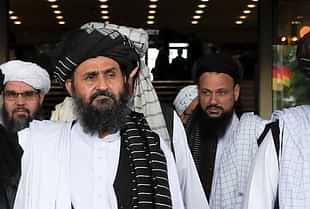The Afghan Interim Government’s Deputy Foreign Minister for Political Affairs, Mohammad Abbas, recently denied allegations of rifts within the administration.
However, critics argue that repeated references to external enemies might be an attempt to obscure the leadership’s internal struggles.
If unity among Afghan leaders truly exists, the persistence of internal disagreements raises questions.
True stability, critics suggest, requires self-reflection rather than external blame. Reports and former officials’ testimonies indicate divisions among the IEA leaders, with challenges extending beyond foreign intervention.
Afghanistan’s economic hardships are compounded by rigid policies, limited global recognition, and the exclusion of professionals from administrative roles.
The rise of resistance movements and the inability to establish a fully functioning transitional government signal deeper internal issues.
Blaming outside forces, critics argue, only sidesteps the responsibility to address leadership failures and achieve genuine stability.


